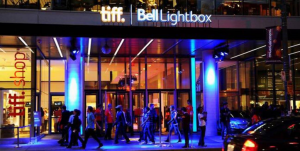Sherryl Vint
 Department: English/Media and Cultural Studies
Department: English/Media and Cultural Studies
Rank: Professor
# of years at UCR: 8
Top three texts I would take to a desert island: There is no way I could pick just three. It would depend on the day and the project and so would always change.
Favorite entertainment: I love films, not just sf films, but films of many genres, periods, and countries.
An “adventure” I am looking forward to, post-pandemic…I’d like to say travel, and certainly I love to visit ruins and galleries and I have been a frequent traveler in the past. But I’ve also learned during the pandemic that I can also enjoy not having to deal with airport screening. And so we shall see.
Learn more about my work @ https://mitpress.mit.edu/books/science-fiction-2
Q: My research agenda summed up in one sentence:
I examine how popular culture responds to the ways that developments in science and technology have an impact on social and political life.
Q: Would you say that there is a central theme or aim in your various projects?
The central problem my research explores has to do with the relationships among popular culture, public imaginaries, and social change, focusing on speculative fiction. I’m interested in understanding how fictional texts reflect popular beliefs and preoccupations, sometimes serving to pave the way for certain sociotechnical changes to be accepted and at other times drawing attention to potential long-term consequences that might not be anticipated in the spaces of scientific research and technological design. Speculative fiction extrapolates both sociotechnical change and daily life, foregrounding questions of cultural values, social justice, family and gendered relations, and the like as it thinks about the possibilities and risks associated with scientifically driven change. It is also a genre deeply concerned with futurity and difference, with imagining life into the future, but also with challenging the status quo and thus imagining new social and material lives. This connection to utopian discourse is what motivated my initial decision to focus on speculative fiction.

Bell Lightbox Theater, the central venue of the Toronto International Film Festival.
Q: How is your current project developing these questions?
My current research looks at the intersections between economics and speculative fiction (“sf”), looking especially at the way that technology has become more central to financial practices, such as high-frequency trading via algorithms. I’m interested in the various utopian promises that are attached to innovations such as blockchain, including and beyond its role in cryptocurrencies, and in analyzing how sf writers take-up these promises to imagine concrete futures of social change (in both utopian and dystopian modes). I’m also interested in theorizing how sf and financialization share a future-oriented temporality, especially in the centrality of trading financial instruments based in debt (such as the CDOs that initiated the 2008 crash). Finally, this project will take up texts that imagine economic systems and a world beyond and after capital, looking at how they anticipate the achievement of social, racial and environmental justice.
Q: What inspired this area of inquiry?
My interest in economics emerged from my previous work on biopolitics and sf, which mainly explored the commodification of biology and its ethical and political implications. While conducting that research, I became aware of the importance of speculative narrative techniques in the documents written to secure venture capital funding in biotech, documents that I understand as a kind of speculative fiction. Another factor was that I was invited to write a chapter about the future of money for a book about the sociology of money, and the more I learned about money as a social technology, the more I began to see connections between financial innovations, especially blockchain, and speculative extrapolation.
Q: What do you tell friends and family when they ask you what you love about your work?
What I love most about my work is that I am always able to learn new fields and new frameworks of knowledge as I seek to understand how they have been taken up by popular culture. Each of my books explores how sf responds to research developments in a particular field, and much of my own process is learning about these fields as I theorize the sf response to them. In many ways I’d prefer to be the student, as I enjoy learning new things, and my mode of research allows me to take on something novel for each new project.
Q: What would you change about higher education, if you could?
If I could change one thing about the academy, it would be the centrality that grades to the classroom. I understand that students need feedback and that this includes some way of signaling if they understand the material well or need to improve. Nonetheless, I feel that anxiety about grades is detrimental to the learning experience, repressing curiosity and the sheer pleasure of learning in favor of a narrower focus on maximizing one’s grade.
Q: Do you have a favorite or “go-to” resource you recommend?
I often use the FutureStates short film series, available for free on YouTube, in my teaching. It offers a wide range of short films that illustrate the ways that sf responds to many problems facing the world today, from climate change, to surveillance by social media, to genetic engineering, to loss of jobs due to automation—and more. The films offer diverse perspectives on these issues and often highlight issues of inequality in how technology is distributed.
Q: Any tips for managing the online learning environment?
A tried-and-true teaching practice that also works well online is the small-group discussion. I think zoom would be a disaster without the break-out rooms feature, but this tool to enable smaller group discussion means that class can remain interactive and social, at least to a degree.
***
In Focus is a interview series that features faculty associates of the Center for Ideas and Society.
